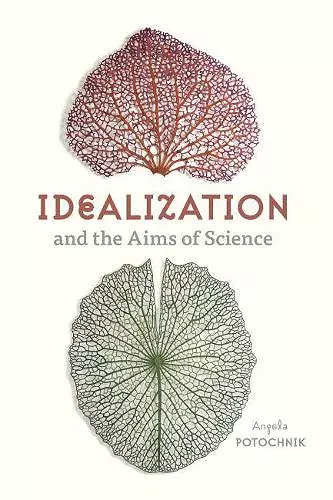Idealization and the Aims of Science
Format:Paperback
Publisher:The University of Chicago Press
Published:27th Oct '20
Should be back in stock very soon

Science is the study of our world, as it is in its messy reality. Nonetheless, science requires idealization to function—if we are to attempt to understand the world, we have to find ways to reduce its complexity.
Idealization and the Aims of Science shows just how crucial idealization is to science and why it matters. Beginning with the acknowledgment of our status as limited human agents trying to make sense of an exceedingly complex world, Angela Potochnik moves on to explain how science aims to depict and make use of causal patterns—a project that makes essential use of idealization. She offers case studies from a number of branches of science to demonstrate the ubiquity of idealization, shows how causal patterns are used to develop scientific explanations, and describes how the necessarily imperfect connection between science and truth leads to researchers’ values influencing their findings. The resulting book is a tour de force, a synthesis of the study of idealization that also offers countless new insights and avenues for future exploration.
“Angela Potochnik’s ambitious book is an antidote to the view that the philosophy of science tries to pronounce grandly on what scientists ought to do." -- Philip Ball * New Scientist *
"In sum, this is a rich, well-argued book that articulates a coherent view of science and explicates the essential role of idealization in a world of cognitively limited people." -- Notre Dame Philosophical Review
"In her exceptional book, Idealization and the Aims of Science, Angela Potochnik explores the nature of idealizations while accounting for why they are so ubiquitous.
The picture of science that emerges from Potochnik’s work is that of a thoroughly human endeavor. Science is a tool that helps us navigate an extremely complex world. Potochnik’s picture of science is compelling and helps to ground an appreciation of how truly impressive the success of science is." * Science & Education *
"Why do scientists deliberately maintain falsehoods in their theories and models? Given the complexity of natural phenomena, scientists must simplify and generalize to isolate details from which causal patterns may be identified. Consequently, researchers must make choices about what to study and how; in doing so, the author argues, social values become entrenched in science. Potochnik contends that science doesn’t pursue truth directly but aims to support “human cognitive and practical ends.” Following several case studies of recent research in such diverse topics as behavioral ecology and human aggression, and—to a lesser extent—fluid dynamics, quantum physics, and climate change, the author offers a detailed exploration of how social values are linked to science. Arguing that science should be regarded as a tool to facilitate human action, Potochnik concludes that scientists should pursue research that advances both action and understanding. She defines the most valuable subjects as those of ethical concern—for example global climate change or studies involving human physiological and psychological health. Written primarily for philosophers of science, this text has practical implications for science practice. It will be of greatest benefit to advanced academics and active research scientists. Recommended."
* Choice *"This thought—that science makes the world’s complexity accessible to human understanding via idealization—is the central contention of Angela Potochnik’s ambitious, striking book." * Biology & Philosophy *
"Idealization and the Aims of Science is a fantastic book. In it, Potochnik argues for a compelling, global picture of how science works – one that seeks to clarify how the practice of science relates both to human cognitive capacities and to the world we seek to understand. The book is ecumenical yet concise. It is broad but focuses on the details. It seeks to make generalizations about science, but it does so through diverse analyses of particular scientific practices. If one wanted a single book that summed up both the challenges and opportunities in current philosophy of science, one could hardly do better. . . . I expect that I will return to it frequently as I pursue my own projects for useful ideas, contrasting viewpoints, and helpful articulations of general principles. I can’t think of a better endorsement to give to a philosophical text." * Philosophy of Science *
"A wonderful book. It is well informed by contemporary research from various sciences, and the discussion throughout is thoughtful and engaging. . . . The book is rare in that it is accessible enough that novices will be able to follow the main ideas and benefit from reading it, and yet it is rich enough that experts will profit from closely studying it. Potochnik’s book is a must read for those interested in idealizations." * Science & Education *
"An impressive book that will not disappoint its readers in terms of its richness and ability to provoke new ideas on numerous topics in the philosophy of science." * Metascience *
"Potochnik's book comes as a breath of fresh air in general philosophy of science, both because of the variety of examples examined and because of its approach, aimed at drawing attention to the fact that science is not an ahistorical and impersonal enterprise but is fully founded on the ideas, aspirations, and activities of those that make science: the scientists. . . . This book will be valuable reading for anyone who wonders what science is and why it constitutes the most privileged form of knowledge in our world today." * History and Philosophy of the Life Sciences *
ISBN: 9780226759449
Dimensions: 229mm x 152mm x 8mm
Weight: 367g
288 pages